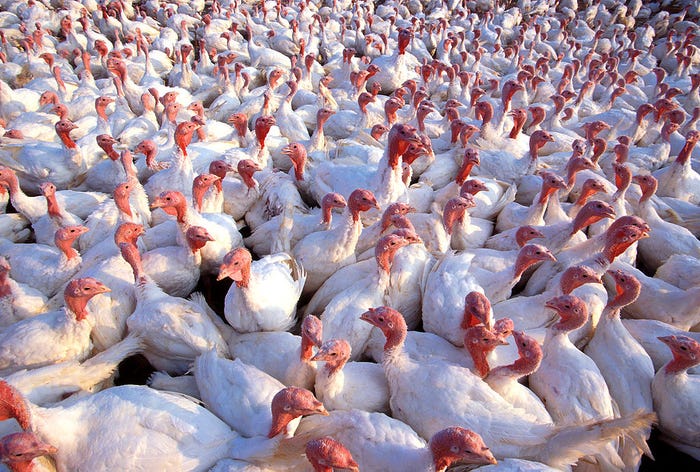Avian influenza outbreak holds lessons
The recent outbreak of avian influenza has industry experts questioning their previous thinking on mode of transmission and emphasizing the importance of biosecurity.

The data is still inconclusive but indications are that the H5N2 avian influenza virus, over the past few years, may have morphed into more of an airborne virus in that it may have the ability to attach to debris.
.
Initial indications are that moist conditions and cool temperatures may, in fact, aid in dust or feather travel from farm to farm, and even state to state.
To date, many of the sites infected with the virus have been near water bodies with wild fowl present. Others, however, are farms near those farms. In some cases, the virus has successfully bypassed biosecurity measures meant specifically to minimize such exposure for commercial poultry.

According to a fact sheet released April 24 by the Egg Industry Center in Ames, Iowa, the H5N2 virus appears to survive indefinitely if frozen. It is also known to live for seven days in bird feces. What the virus doesn’t like is heat. When warm weather gets here and is here to stay, the virus spread is expected to be brought to a halt.
EIC experts also said ultraviolet light kills influenza. Likewise, dryness or low humidity reduces its viability.
Interestingly, type of production has not played a role in the recent H5N2 outbreak, according to EIC. The virus was first detected in Asia where commercial-scale production of eggs is nearly non-existent. In the U.S., the virus was first detected in backyard flocks in the Northwest. The current situation in the Midwest has affected floor birds, caged birds and birds with expanded stocking densities. “The virus is specific to species, not housing,” said EIC.
For bird owners, the most important thing to do is to maintain the highest of biosecurity standards. The U.S. Department of Agriculture recommends that owners of backyard flocks follow these tips to prevent poultry diseases:
• Keep your distance (restrict access to your property and your birds);
• Keep it clean (clean and disinfect your clothes, shoes, equipment, and hands);
• Don’t haul disease home (if you have been near other birds or bird owners, clean and disinfect poultry cages and equipment before going home);
• Don’t risk disease from your neighbor (do not borrow lawn and garden equipment, tools, or poultry supplies from other bird owners), and
• Know the warning signs (sudden increase in bird deaths, sneezing, coughing, nasal discharge, watery or green diarrhea, lack of energy, poor appetite, drop in egg production, swelling around the eyes, neck, and head, and purple discoloration of wattles, combs, and legs).
Commercial poultry producers are advised to do the following to minimize the risk of an AI outbreak on their farms:
• Keep an “all–in, all–out” philosophy of flock management. Avoid skimming flocks—birds left behind are exposed to work crews and equipment that could carry poultry disease viruses. Process each lot of birds separately, and clean and disinfect poultry houses between flocks.
• Protect poultry flocks from coming into contact with wild or migratory birds. Keep poultry away from any source of water that could have been contaminated by wild birds.
• Permit only essential workers and vehicles to enter the farm.
• Provide clean clothing and disinfection facilities for employees.
• Thoroughly clean and disinfect equipment and vehicles (including tires and undercarriage) entering and leaving the farm.
• Do not loan to, or borrow equipment or vehicles from, other farms.
• Change footwear and clothing before working with your own flock after visiting another farm or live–bird market or avoid visiting another bird farm if possible.
• Do not bring birds from slaughter channels, especially those from live–bird markets, back to the farm.
If AI is detected, farms must be thoroughly cleaned and disinfected. AI viruses are inactivated by heat and drying and also these viruses are very sensitive to most disinfectants and detergents. The area to be disinfected must be clear of organic material, which greatly increases the resistance of avian influenza virus’ resistance to disinfection.
If birds exhibit clinical signs of highly pathogenic avian influenza or might have been exposed to birds with the disease, producers or bird owners should immediately notify federal or state animal health officials. All bird owners, whether commercial producers or backyard enthusiasts, should continue to practice good biosecurity, prevent contact between their birds and wild birds, and report sick birds or unusual bird deaths to state/federal officials, either through their state veterinarian or through USDA’s toll-free number at 1-866-536-7593.
For a complete list of states where AI has been detected, visit: http://tinyurl.com/kzlazqt
About the Author(s)
You May Also Like


.png?width=300&auto=webp&quality=80&disable=upscale)
